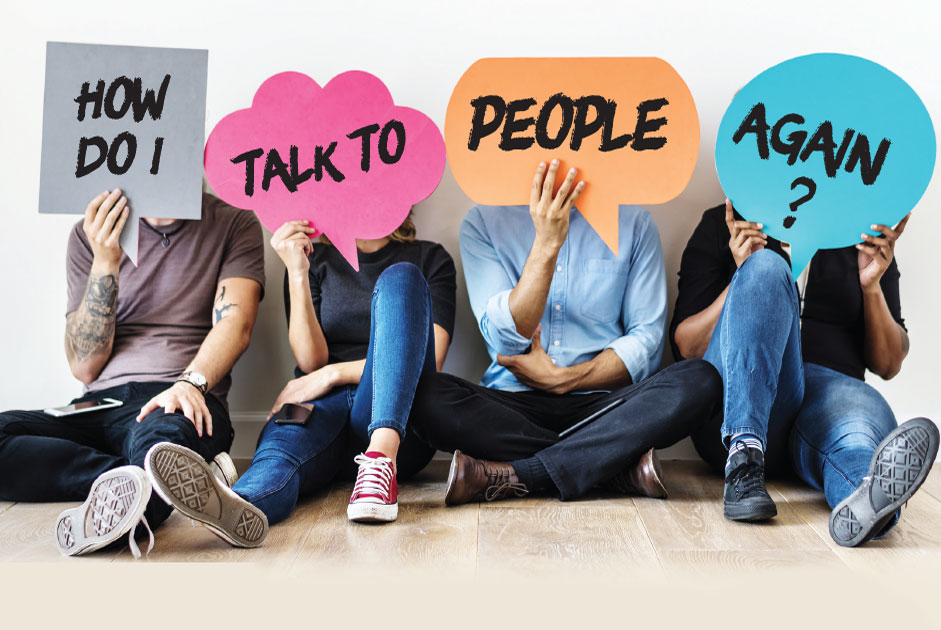I’m seeing more and more people come to classes and contact me for coaching to work on interpersonal communication skills. This is completely understandable – we are transitioning to “back to normal” after more than a year of mainly communicating halfway – if we were working from home, we’ve been communicating through a computer screen. If we were working at a location, we’ve been wearing a mask.
With both of those limited communication methods, you’re losing important data: through a screen, we forget how people feel! We all bring energy and emotions into a conversation, if you’re feeling joy, stress, frustration, excitement, whatever, you’re bringing that into the conversation and space you’re taking up. If you’re in-person and talking through a mask, you’ve taken away half of your facial expressions; sure, we can tell if people are smiling with their eyes, but how vulnerable and intimate is consistent eye contact?
While we haven’t forgotten how to talk to people, we have dropped some of the skills we had pre-pandemic – couple that with the contested environment we’re currently in historically, and you have a recipe for communication disaster. If you’re feeling any of these anxieties or need a refresh, keep reading for interpersonal communication tips as you brace for full re-entry.
Listening is still key.
I don’t write an article for any publication about communication without this advice. It’s often seen as foundational, and so many people are looking for the larger “silver bullet,” but the truth is, this is one of the most effective things that people miss!
When you’re getting back into the groove of in-person, don’t forget to listen. Real talk: when you were on the Zoom, you were probably doing a few other things at the same time. No shame! Just encouraging you not to do that in person. Ditch the distractions and focus on the person in front of you. If you find yourself drifting, bring it back and pick up words they are saying to summarize or reiterate in your responses.
Mind your body language.
I found myself, again, in a meeting and sitting like a croissant. Thankfully, this was at home, but look at your posture: are you sitting all scrunched up? Remember when we would talk about how folks would stand with their arms crossed and thought they looked standoffish or disengaged or insecure?
Now that we’re back in spaces, be aware of your body language, and watch others! If you’re sitting or standing all crunched up, and someone might get the impression that you’re nervous or something similar, fix it! If you’re cold (I know, how were offices always this cold?!), say that! Don’t just sit there and let folks wonder.
If someone is sharing something with you, acknowledge that you heard them. I know we’re in this new world where we have experienced so much trauma, joy, adventure, solidarity – by ourselves – so we have so many things we want to share. If someone is taking time to tell you about something, listen to them with a full heart and attention instead of getting ready to tell them about your experience.
Need some guidance on this one? Take some turns with yourself being an asker and a teller – an asker does exactly that: asks questions! A teller shares experiences. Make sure you’re giving yourself time to do both.
Don’t go too fast.
This has been a big piece of advice lately: we’re going to want to do all the things and go to all the events and see all the people. What happens when you go to a restaurant and order all the food? You might have joy for a moment; then you feel ill. Take your time on reentry: don’t go too fast, and keep taking care of yourself.






















